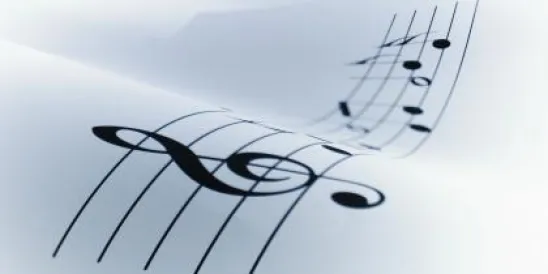In May 2014, the Trust acting on behalf of the estate of Randy Wolfe (a/k/a Randy California) of the rock group Spirit filed a copyright infringement suit against Led Zeppelin related to the first chords in the band’s most famous song, “Stairway to Heaven.” See Skidmore v. Led Zeppelin, 15-cv-03462, U.S. District Court, Central District of California (Los Angeles). The Trust brought the case against Led Zeppelin after a 2014 Supreme Court decision opened the door for a broader interpretation of the time frame to seek damages for copyright infringement under the U.S. Copyright Act. See Petrella v. Metro-Goldwyn-Mayer, Inc., 134 S.Ct. 1962 (2014). The Petrella decision limited the application of the defense of laches and permitted lawsuits to be brought involving older copyrighted works with more recent acts of infringement that fall within the statute of limitations pursuant to 17 U.S.C. § 507(b). Hence, in the Skidmore case, despite the decades-old circulation of “Stairway to Heaven,” the plaintiffs decided to bring suit against Led Zeppelin within three years after the release of a re-mastered version of the famous song.
In Skidmore, the crux of the plaintiffs’ case was that Led Zeppelin (with Jimmy Page and Robert Plant as co-authors) allegedly stole the opening passage of “Stairway to Heaven” from “Taurus,” an instrumental by Randy Wolfe that can be found on Spirit’s 1968 debut album. The dispute largely concerned a brief musical passage 45 seconds into “Taurus.” It was alleged that the iconic opening guitar sequence of “Stairway to Heaven” (which was released in 1971, three years after “Taurus”) was copied from “Taurus.”
The Trust also sought an injunction against the release of any additional albums containing the song “Stairway to Heaven” in an attempt to obtain a writing credit for Wolfe, who died in 1997. This case was not the first time Led Zeppelin had been accused of copying another artist’s work. The Trust’s lawsuit listed other songs for which Led Zeppelin had paid settlements over songwriting credits, including “The Lemon Song,” “Babe I’m Gonna Leave You,” “Whole Lotta Love,” and “Dazed and Confused.”
On April 11, 2016, Los Angeles District Judge Gary Klausner ruled that there were enough similarities between “Taurus” and “Stairway to Heaven” for a jury to decide the claim. On June 23, 2016, following a trial, an eight-member panel jury unanimously found that the similarities between the songs did not amount to copyright infringement. The decision came one year after a jury (in a lawsuit filed in the Central District of California before Judge John A. Kronstadt) ruled that Robin Thicke’s “Blurred Lines” (produced by Pharrell Williams) infringed Marvin Gaye’s “Got to Give It Up.” In the Blurred Lines case, Thicke and Williams were ordered to pay $7.4 million (reduced to $5.3 million) and ongoing royalties to Gaye’s family. The Blurred Lines decision is currently on appeal in the Ninth Circuit.
The Trial
Jurors in the Led Zeppelin case had to decide two issues: First, was it plausible that members of Led Zeppelin had sufficient opportunity (i.e., access) to hear “Taurus” before they wrote “Stairway to Heaven”? Second, if so, were the opening chords of “Stairway to Heaven” “substantially similar” to “Taurus”?
Issue 1: Access
Led Zeppelin’s guitarist, Jimmy Page, singer, Robert Plant, and bassist, John Paul Jones, all took the stand to testify about their recollections of Spirit and whether they attended Spirit performances, listened to Spirit music or recalled playing the same shows. The Led Zeppelin band members also were questioned by the plaintiffs’ counsel on how “Stairway to Heaven” was created 45 years ago. The jurors sided with the plaintiffs on the issue of access, finding that Page and Plant would have been familiar with “Taurus.” Specifically, the jury relied on the evidence presented in court that (1) Page had the Spirit record in his collection of more than 10,000 records and CDs, (2) Spirit had appeared as an opening act for Led Zeppelin and (3) other members of Spirit testified to encounters with Led Zeppelin members.
Issue 2: Substantial Similarity
The jury next had to determine whether the famous opening to “Stairway to Heaven” was substantially similar to the instrumental opening portion in “Taurus.” Both sides presented expert musicologists, who offered divergent opinions on the musical composition of “Taurus.” Defense experts testified that the two songs shared little in common other than a chord sequence that dates back 300 years. Plaintiffs’ experts said there were significant other likenesses, including the use of arpeggios, similar note combinations, pitch and note durations.
However, the jury never heard the original recording of “Taurus,” notwithstanding its conclusion that Led Zeppelin had access to the recording. The original recording of “Taurus” was made prior to 1972, when sound recordings were not subject to federal copyright protection. The Sound Recording Act of 1971 (effective February 15, 1972) changed federal copyright law to include protection for sound recordings. Instead, jurors had to hear and rely on expert renditions of the sheet music (i.e., the underlying musical notes) for “Taurus” to assess and decide the issue of “substantial similarity” to “Stairway to Heaven.”
Notably, the Trust’s expert played the sheet music on guitar, the instrument used in recorded versions for both “Taurus” and “Stairway to Heaven,” whereas Led Zeppelin’s expert decided to play the sheet music on piano. Irrespective of similarities in the sound recordings, the Skidmore case was decided based on the only protectable aspect – the musical composition of “Taurus” and not the sound recording. During deliberations, the jurors asked to see clips of each expert rendition more than once. Ultimately, the jury returned a unanimous verdict in favor of Led Zeppelin.
Comparisons and Impact: Blurred Lines and Led Zeppelin Cases
The “Stairway to Heaven” infringement decision came one year after a jury ruled Robin Thicke’s “Blurred Lines” infringed Marvin Gaye’s “Got to Give It Up.” In the Blurred Lines case, the eight-member jury also returned a unanimous decision based on the musical composition of “Got to Give It Up” and not the actual recorded version of Gaye’s song. However, the outcome for Led Zeppelin was decidedly different from the Blurred Lines ruling.
The Blurred Lines decision, and its large award of damages, has been followed by a noticeable uptick in copyright infringement claims surrounding popular songs and recordings. Well-known artists such as Sam Smith, Ed Sheeran, Robin Thicke and Justin Beiber are making news for copyright infringement claims being brought against them. However, the recent verdict in favor of Led Zeppelin suggests that limitations inherent in protected music can limit a determination of infringement. Even though the jury sided with the plaintiffs regarding Led Zeppelin’s access to Spirit’s “Taurus,” the jury concluded that the protected elements of “Taurus” − the musical composition in the sheet music and not the sound recording − were not “substantially similar” to “Stairway to Heaven.” It is too soon to say whether the Blurred Lines outcome or the Led Zeppelin result will be the norm.
Notwithstanding the appeal, the Led Zeppelin case reinforces the notion that different aspects of an entire song, specifically the musical composition, the instrumentation and the final recording, each are subject to analysis in a potential copyright infringement claim, and the analysis can dictate different outcomes in claims of infringement.
As for the appeal, the Trust’s attorneys are challenging the jury verdict in the Ninth Circuit. The notice of appeal reads:
Please take notice that Plaintiff Michael Skidmore, Trustee for the Randy Craig Wolfe Trust, hereby appeals to the United States Court of Appeals for the Ninth Circuit from the final judgment entered on June 23, 2016, as well as any and all interlocutory rulings, decisions, and orders that gave rise to the judgment and are merged therein.
The filing does not provide legal arguments for why the case should be reconsidered, making it difficult to anticipate the basis for appeal. Furthermore, Led Zeppelin’s publishing company is seeking more than half a million dollars from the Trust in legal fees already incurred for the defense, triggered by a 2016 U.S. Supreme Court decision that allows prevailing parties in copyright cases to seek legal fees. See Kirtsaeng v. John Wiley & Sons, Inc., 136 S.Ct. 1979 (2016). Given the appeal, these fees will only increase. This case and the Blurred Lines case are ones to watch as their outcomes could impact the music industry and copyright law in general.



 />i
/>i

